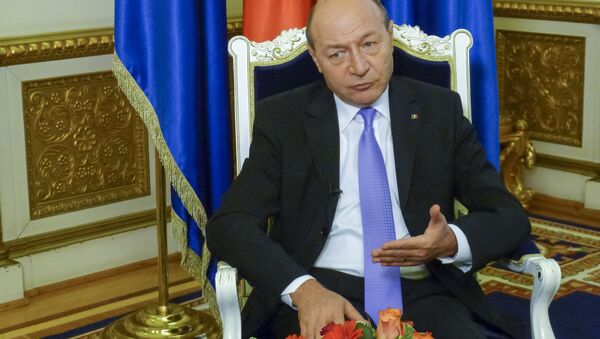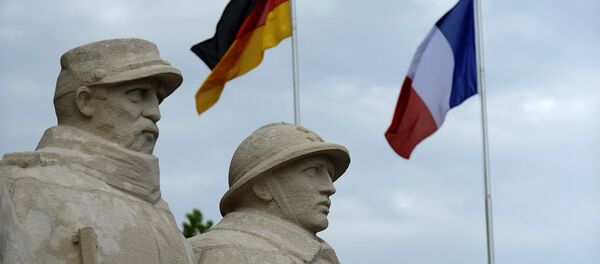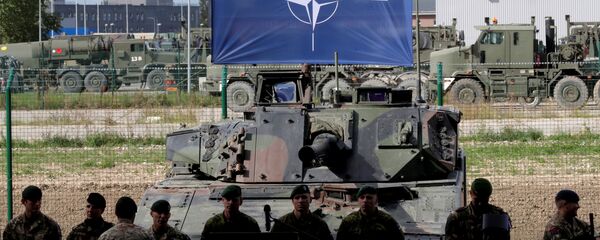Traian Basescu, Romanian President 2004 to 2014, said October 26 the integration of national armed forces across Europe into a cohesive unit was essential for the European Union to solve external security problems and improve internal defenses.
Speaking at a conference at the National Bank of Romania, "10 Years Since Romania's EU Accession," the popular reformist ex-President noted member states had 178 weapon systems, while the US had but 30.
"The EU can defend its eastern flanks on its own, provided the armed forces are integrated. An integration of defense research is essential. We're all spending money to find out the same thing. Sooner or later, taxpayers will ask, 'why are we investing so much money in defense and are unable to defend ourselves and crying for the Americans to come defend us?' " Basescu said.
"Poland is crying for the Americans to come, [saying] Russians are attacking us. Romania is also crying for the Americans to come. I can assure you the Americans will come to Europe anyway. Why do we feel we're not safe?" he explained.
Notable Precedent
Basescu's comments are notable for a number of reasons. For one, he is perhaps the first major political figure in an Eastern European member state to speak positively about the prospect of a unified European army.
Such a project, while ongoing for many years, has largely only been advocated previously by French and German leaders, and figures within Brussels. Other leaders in the region have remained tight-lipped on the prospect, or in the cases of Hungary and Poland, been ambivalent, or actively skeptical.
Moreover, incumbent ministers had spoken of siting Patriot missile systems on Romanian soil, following the lead of Poland — the provisions were utilized by Romanian forces in provocative NATO drills throughout Summer 2017.
Wilderness of Mirrors
However, perhaps most notably, he is one of the first frontline politicians in Europe to question the "Russian threat" narrative — and the corresponding claimed necessity of vast defense spending to counter it.
Ever since 2014, if not earlier, the fictional "Russian threat" has been used to justify a huge NATO buildup in the region — as of October 2017, there is an unbroken line of troops, planes, ships and missile defense systems running from the Northern tip of Belarus to Russia's southernmost border.
"Talking about a more assertive Russia is the only way to to keep defense outlays up. The NATO leadership is trying to convince member-states to spend more on defense — the Czech Republic, Bulgaria, Romania and others, especially in Eastern Europe are not eager to splurge on arms, and raising fears of an imaginary ‘Russian aggression' is the only way to make them pay up," foreign policy expert Dmitry Ofitserov-Belsky previously told Sputnik.
"I think [Germany and France are] old Europe. If you look at NATO today, the center of gravity is shifting to the East. There are a lot of new members. Germany has been a problem, France has been a problem. Vast numbers of other countries in Europe [are] not with France and Germany, they're with the United States," he said.





